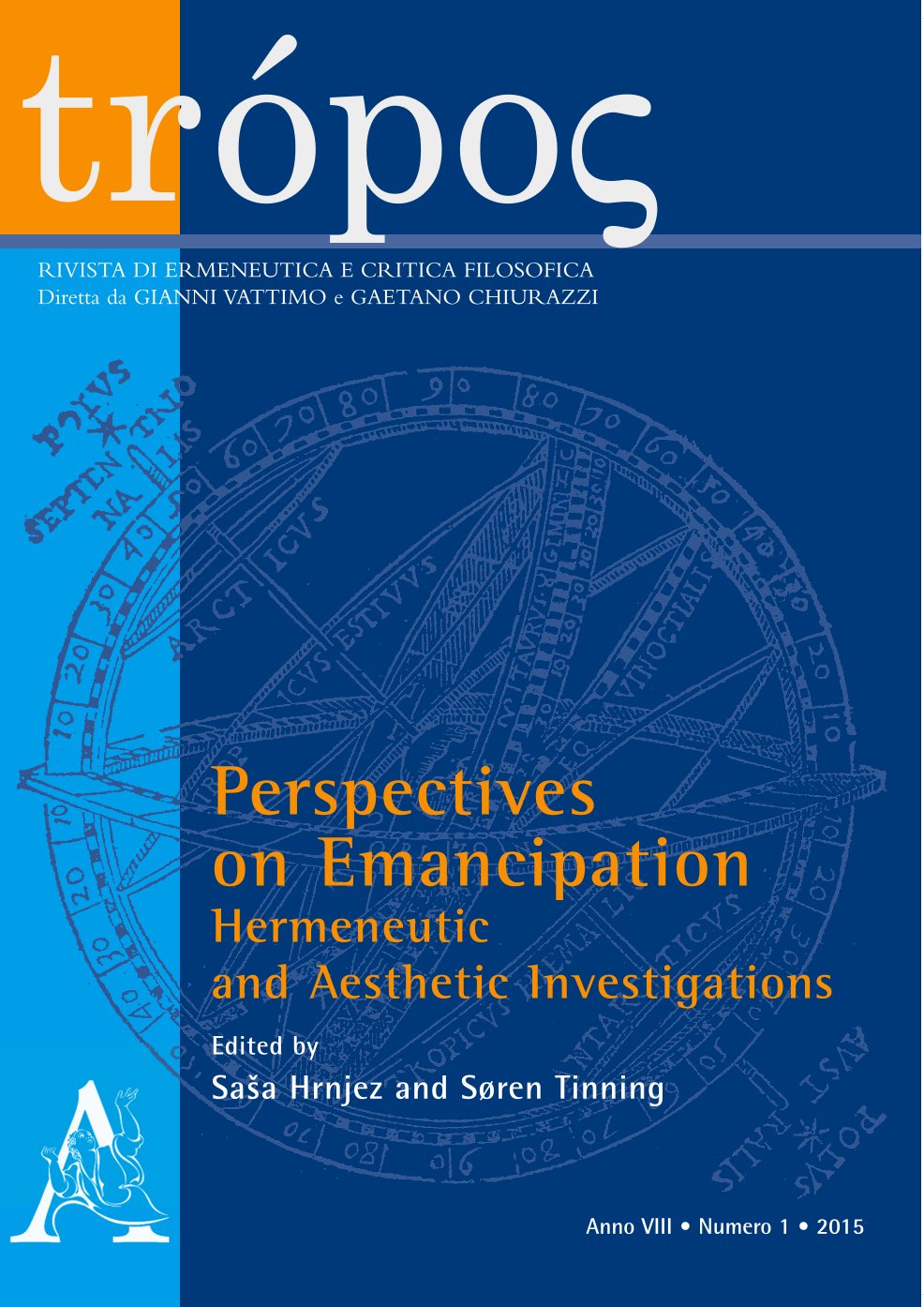Paul Ricœur
La ricezione del concetto di catharsis tra etica ed estetica
DOI:
https://doi.org/10.13135/2036-542X/7964Parole chiave:
Forms of Feeling, Imagination, Mimesis, Phronesis, PraxisAbstract
This work assesses the interpretation of the Aristotelian concept of catharsis that Ricoeur develops in Time and Narrative. For the French philosopher, catharsis is as a key concept for understanding both the ontological and the ethical–practical values that he attributes to the experience of art. This fundamental moment of the phenomenology of tragic action points at the effect that a work of art has on the audience as a constitutive moment of its truth. Through his interpretation of the concept of catharsis, Ricoeur confronts a key issue for the definition of a horizon of experience emancipated from technical–instrumental interests. In this horizon of experience, the sensitive moment becomes constitutive to a model of rationality, the principles of which belong to praxis rather than to theoria. In this sense, the pleasure of the text is analysed through the mediation of the imagination, which in the work of Ricoeur appears in its ethical–practical functions in all its ability to redefine and renovate the world of praxis—also in the direction of opening towards a “story yet untold” of the victims. The story still to be told requires that the concept of catharsis is treated through the cross reference between historical and fictional narratives.


